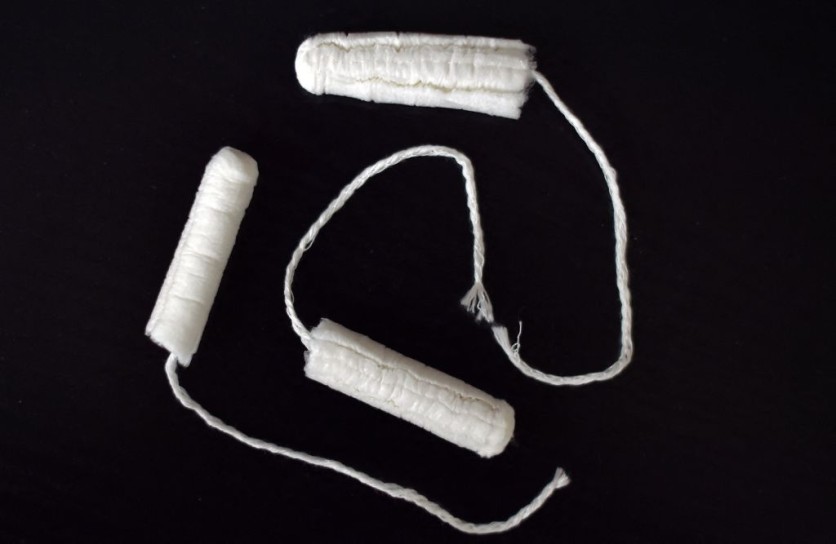Virginia Tech scientists developed a biomaterial to transform menstrual blood into a gel to reduce carbon emissions and provide high-quality feminine hygiene products.
This innovation was done in response to period-proof underwear maker WUKA's estimates that a year's worth of disposable pads and tampons generates around 19.62 pounds of CO2 emissions, the same as charging a cell phone over 1000 times, per Interesting Engineering.
The powder-based biomaterial is eco-friendly and effective at blood absorption. It prevents leaks and spills. The creators say the substance is antimicrobial, preventing infections.
Research Applications
Virginia Tech assistant professor of biological sciences Bryan Hsu said the biomaterial uses alginate, a natural substance used in food and healthcare applications, including wound dressings.

Hsu noted that traditional wound care utilizes alginate "to accelerate clotting by concentrating clotting factors." He added that their invention involves "transforming menstrual blood into a gel that promotes self-coagulation" that addresses an "inherent clotting deficiency in menstrual blood."
Hsu stressed the safety of alginate and glycerol, which are typically benign but may cause allergies in certain people.
Biomaterials can replace absorbent materials in pads and improve menstrual cups. In traditional goods, a Staphylococcus aureus-fighting polymer reduces the risk of toxic shock syndrome.
Virginia Tech stated that the biomaterial is FDA-approved for safety and biodegradability. Alginate-glycerol, made from seaweed and sugar alcohol, is safe to use.
Hsu noted that their innovation can "extend to enhancing menstrual hygiene with minimal environmental impact." The concept advances sustainable menstruation products for women, addressing health and environmental issues.
Toxic Chemicals Found in Tampons
Separately, the University of California, Berkeley, found hazardous elements, including arsenic and lead, in frequently used tampons, which may increase user health risks.
Researchers bought tampons between September 2022 and March 2023 in New York City, Athens, London, and two major internet merchants. They examined 30 cotton, rayon, viscose, or mixed tampons from 14 brands and 18 product lines. They detected all 16 metals tested in every product per Time.
Lead study author Jenni A. Shearston remarked that "very little" has been done to "test chemicals in tampons" despite the immense possibility for public health concern. Her research team believes that their work was the first to "quantify" metals found in tampons. "All elements we examined, including deadly arsenic and lead, were present," according to USA Today.
Approximately 52% to 86% of menstruating Americans use tampons. According to the report, no metal was "safe." Experts say direct contact is harmful because the vagina absorbs toxic metals more quickly. Chronic metal absorption increases dementia, cancer, infertility, and other health risks.
Each tampon sold in the US, UK, or EU had different metal levels. Other differences included the levels of metal in organic and non-organic tampons. Due to fertilization in organic cotton fields, the study found that certain metals may be more abundant in organic cotton tampons.
The US, UK, and EU regulate tampons for product safety but not for chemical testing.
The study notes that it did not test for metal absorption and cannot predict health hazards from tampon use. Replicating its findings requires further research.





